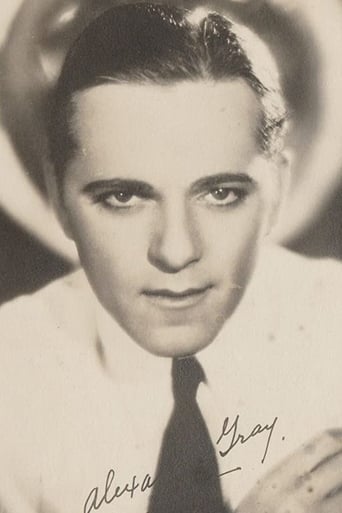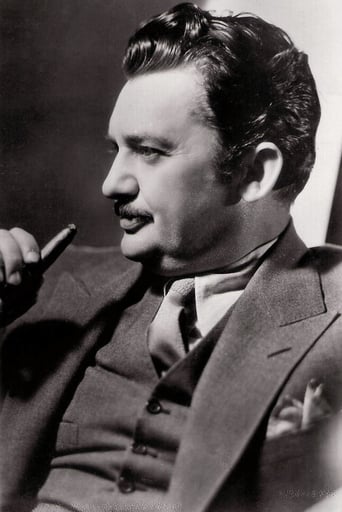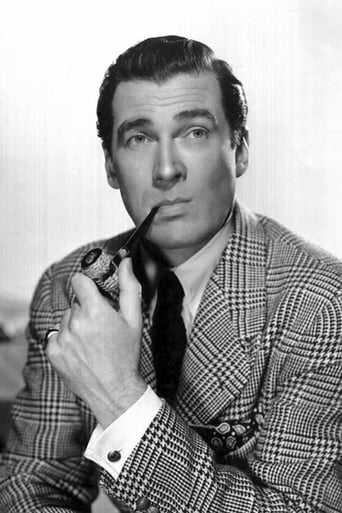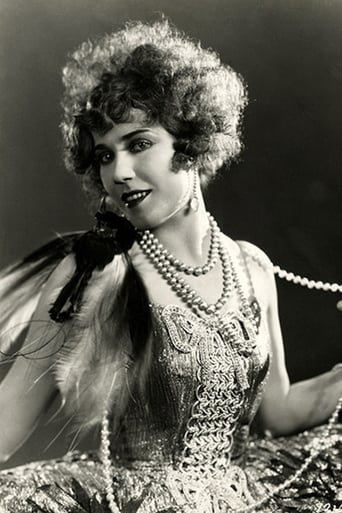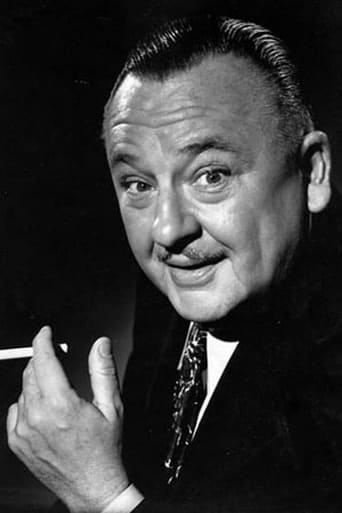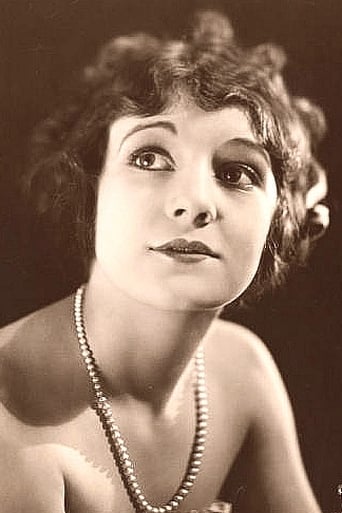Cubussoli
Very very predictable, including the post credit scene !!!
ChanFamous
I wanted to like it more than I actually did... But much of the humor totally escaped me and I walked out only mildly impressed.
Humaira Grant
It’s not bad or unwatchable but despite the amplitude of the spectacle, the end result is underwhelming.
Fleur
Actress is magnificent and exudes a hypnotic screen presence in this affecting drama.
joe-pearce-1
What a delightful surprise this 1930 Warner Bros. film turned out to be. I am an opera lover; as such, I also have a strong feeling for the operetta that was prevalent in Europe and on Broadway from the 1890s into (perhaps) the early 1930s, and this film is very much that kind of thing, written for the screen by Sigmund Romberg (his first screen score), arguably the dominant book-musical (as against revue) Broadway composer of the pre-Kern, Rodgers and Berlin era, with THE STUDENT PRINCE, THE DESERT SONG and THE NEW MOON all seeing the light of day within about 5 years, and with many other successful musicals to his credit. The many surprises include: 1) This is a full two-strip Technicolor film, a process I love because there is a warmth to the coloring missing in the more realistic-if-garish full Technicolor process (and it is Bela Lugosi's first Color appearance despite that claim often being made for his SCARED TO DEATH horror film of the late 1940s); it is quite lovely to look at, 2) It starts out very operetta-ish but in the second half turns fairly dramatic (in much the same way as does SHOW BOAT, and maybe even inspired by the Kern work, 3) As with SHOW BOAT it covers three periods in the lives of its characters, but this one over some 51 years as against SHOW BOAT's 25 or so, 4) It showcases two Broadway stars, Alexander Gray and Vivienne Segal, who never quite made it on the early screen, but who remained popular on stage for decades (especially Segal, who created the leads in THE DESERT SONG and PAL JOEY, among many successes), and 5) For a fairly static film story of 1930, it evidences quite a bit of cinematic imagination. Indeed, in a scene in which henpecked Gray plays a piece at the piano for his little and adoring son, we see his beloved Elsa superimposed to the left and singing the played melody, while from the right there is a constant barrage of invective heard from his unseen wife; Hitchcock might have liked that! Segal seems a bit matronly for Elsa at first (she was 33, and Elsa about 18 at the 1879 start of the film), but was surely cast with the idea that she would be perfect for the 29 or 30 year old mother of two in 1890, and even more so for the semi-wheel-chair-bound grandmother of 1930. Gray is a somewhat stiff actor, probably used to shouting out his spoken lines from Broadway, but does a pretty good semi-mad scene when he loses Elsa, and then is convincing enough as the older and unhappy musician who has relocated to NYC, and is now a second violinist in a Broadway orchestra while Elsa is an Austrian baroness. Walter Pidgeon is rather ineffective as the the Baron, his bosom-pal-turned-romantic rival, but we get to hear him sing a bit and recall that he made his first stage successes as a singer (in fact, back in 1924, he may have been the first singer to ever record Berlin's "What'll I Do?", and for Victor at that). Operettas almost always have a back-up soubrette and comedian as second leads, and these roles are taken here by Louise Fazenda and Bert Roach. (Incidentally, two reviewers mention Miss Segal's resemblance to Bette Midler, but I think they are surely confusing her with Fazenda, a buxom and quite Midler-looking girl, who was also married to Hal Wallis for 35 years; Ms Segal looks more like a taller Mary Pickford of the early 1930s era). Roach can often be an irritating actor, but this is the best talking film role I've seen him in, and he is our only male who lasts the entire 51 years of the story! Even Jean Hersholt, playing Elsa's father but actually hardly old enough to have been Segal's, is sympathetic while still laying the Machiavellian groundwork that pretty much destroys the lovers' lives! Lastly, Virginia Sale as Gray's harpy wife is absolutely hateful (meaning perfect) in the role, and truly looks like a prime candidate for The Wicked Witch of the West! Anyway, the last reel of the movie, supposedly filmed in the famous Universal PHANTOM OF THE OPERA opera house, has an entire 8-minute orchestral work played (possibly 'live' as against pre-recorded, as also seems the case with some of the preceding sung portions) while various dramatics are taking place, and that final reel, though bittersweet, is also intensely moving. The film may seem antediluvian to a younger audience not predisposed to enjoy such unabashedly sentimental treasures, but I thought it was just lovely from beginning to end. A long-forgotten gem, in fact.
earlytalkie
I had heard about this film for years and wanted to see it, but apparently there are rights issues which have kept this from the general public. Today I finally saw the film in what looks to be a bootleg copy. The story is a charming love story that spans the generations. Vivienne Segal is lovely and sings very well. Alexander Gray is good as well. The Technicolor is good, although I suppose the restored print, which languishes in a vault, would be preferable. Looking at Wikipedia, it seems that Warner Bros. holds the rights to this property. I'm not sure I believe that though, as they would have no reason that makes any sense to withhold this from their ever-growing Warner Archive collection of early sound movies. More probably, the reason stems from the fact that Sigmund Romberg and Oscar Hammerstein II are the composers, and perhaps one or both of the family estates is causing a holdup on any DVD release. I think it's time some of these "museum pieces" were made available to film buffs like me, who are sick and tired of hearing about how a film's restored version is molding away in some archive, unable to be seen by any but a handful of privileged people who can afford to travel to some "event", where an untouchable film may be seen by but a fraction of those who wish to see it.
tom.hamilton
I'd never heard of this film before other than a footnote in Bela Lugosi's filmography until I read Richard Barrios' excellent A Song in the Dark. In a chapter detailing some of the horrendous musical disasters Warners launched on an unsuspecting public in 1930 Viennese Nights stood out like an oasis of quality. I was intrigued and went to some lengths to get hold of a copy which I finally watched for the first time about a month ago in a copy that left a lot to be desired. There was a lot of drop out, especially in the first hour, so it was something of an effort to get involved in this bittersweet romance.That I did and that in the end the quality of the copy didn't matter is a real tribute to this film. In fact though I started watching expecting a mildly entertaining museum piece, by the finale there were tears in my eyes and I couldn't stop humming the melodies for days afterwards.Everything about this works beautifully, the storyline, though nothing new is here performed with such sincerity that any predictability is unimportant. The performances from Alexander Gray and Vivienne Segal (finally given a worthwhile vehicle) and the rest of the cast are well nigh perfect, the songs are both lovely, haunting and actually express the emotions perfectly. For once the music is welcome. Alan Crosland's direction is elegant and inventive - in it's use of sound light and shadow, and the different periods as we move from 1880 to 1930 are perfectly evoked. Also the 2 color Technicolor (so far as I can judge) is restrained and very pleasing.For Bela fans, his role as an Ambassador is very brief and consists of no more than half a dozen lines. However he does have a nice moment watching the opera when he purrs `Beau-ti-ful music.. Beau-ti-ful ladies.'!!!It's a real shame this film is so under appreciated. UCLA have produced a wonderful restoration (which played at the National Film Theatre here in England last month) so maybe film fans Stateside can lobby TCM Stateside to screen it. (It's not listed as being in their holdings but surely as a First National Production they must have some right to screen it.)
A real gem of a film.
marcslope
This sentimental Romberg-Hammerstein operetta was made late in the first cycle of movie musicals, and the glut of product at the time crowded it out at the box office. Which is too bad, because it's excellent of its kind -- well-crafted, well-cast, and in handsome two-tone Technicolor.The authors steal from all over the place: The two-generation love affairs (one happy, one unhappy) recall Romberg's own "Maytime," and the poor musician and wealthy officer fighting for the fraulein are right out of "Bitter Sweet." But the story matters less than the songs ("You Will Remember Vienna," "I Bring a Love Song," etc.) and the authors' sincerity. It's an unusually full score for a movie musical, with comic numbers, ensembles, and even a show-within-a-show -- one senses that Hammerstein and Romberg wanted their screen work to be as good as their stage work.Vivienne Segal, a prized stage comedienne/soprano, doesn't really get to demonstrate the dry wit and winking innuendo that made her a theater favorite, but she's sweet and direct (at times, she looks like Bette Midler!). Her leading man -- Alexander Gray, also from the stage -- is stiff in the Nelson Eddy mode, but like Eddy, he gives his all when he sings.There's a minimum of the coy twittering associated (not quite fairly) with operetta, and an affecting story at the center, of two lovers who never stop loving, even as they marry other partners, disastrously. Surprisingly adult stuff for its time, and in the end, very touching.
